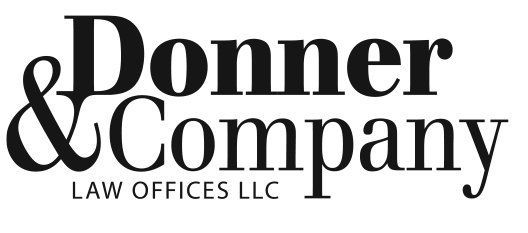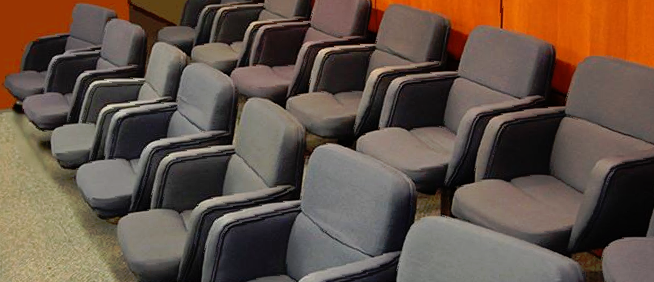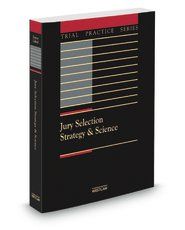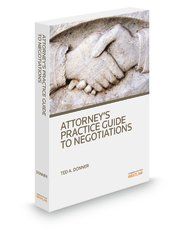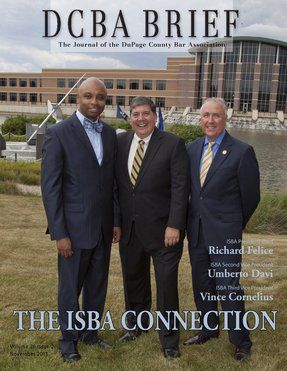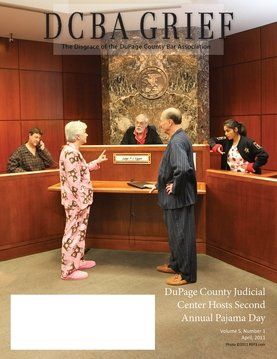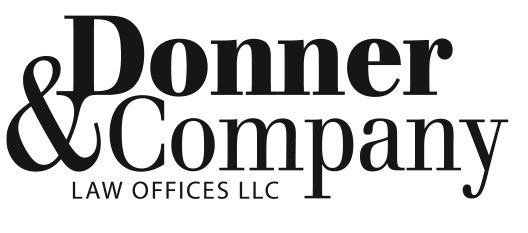Jury Selection: Strategy & Science, by Ted A. Donner and Richard Gabriel (Thomson-Reuters ©2001-2019, Supplemented annually), is a comprehensive text designed for use by lawyers and trial consultants involved in the process of examining prospective jurors in cases of all sizes and levels of complexity.
In addition to covering the applicable law on challenges, appropriate questioning on voir dire, and other areas of concern to lawyers preparing for trial, the text includes a number of sample voir dire transcripts and discussions with experienced litigators and trial consultants regarding their perspectives on how particular problems should be handled. Each transcript is drawn from a published appellate court opinion, allowing for a comparison of the practitioners' perspective with that of the appellate court panel which eventually decided each case. The book features an array of practice pointers on form and the various types of questions, permissible areas of inquiry, the effective use of challenges and the significance of group dynamics. Jury Selection: Strategy & Science, 3d Edition, can also be searched on Westlaw. The book appears at JURYSELECT in the Litigation Library, under Practice Materials.
Here is a sampling of court citations to Jury Selection: Strategy & Science:
Zia Shadows, L.L.C. v. City of Las Cruces, 829 F.3d 1232, 1246–47 (10th Cir. 2016) (“[W]e cannot conclude that government employment, standing alone, bars a prospective juror from serving in a case involving the government employer. But in reaching this conclusion, we by no means hold that a government employee could never be found impliedly biased on the basis of that employment. For example, this court has frequently referred to Justice O’Connor’s observation that a juror who is ‘an actual employee of the prosecuting agency’ might present the sort of ‘extreme situation’ that would call for an implication of bias.... Such circumstances may also exist where... the potential juror is an employee of the very agency or department whose conduct or interests are at issue in the case [or] through the use of careful follow-up questions, counsel seeking to disqualify a juror may be able to establish actual bias. See Ted A. Donner & Richard Gabriel, Jury Selection Strategy and Science, § 32.1 (3d ed. 2015–16)”).
Pena-Rodriguez v. State of Colorado, petition for writ of certiorari, pg. 23 ("[T]here are inherent limitations on the capacity of voir dire to prevent racial bias from entering the jury room in the first place. ... [W]hen defendants are permitted to inquire specifically into racial biases, even the Colorado Supreme Court recognized that defense counsel is often well advised not to pose such direct questions. Pet. App. 11a n.5. For one thing, such inquiries 'might be viewed as insulting to jurors or as raising an issue defense counsel does not want to highlight.' Villar, 586 F.3d at 87 n.5; see also Ted A. Donner & Richard K. Gabriel, Jury Selection Strategy and Science § 34:1 (3d ed. 2014) (“Race and gender bias may be appropriate reasons for excusing prospective jurors, but the subjects should probably not be specifically addressed, in any voir dire, unless the facts of the case suggest that racism could be a dispositive factor.”).
Graham v. All American Cargo Elevator, Slip Copy, 2013 WL 5604373 (S.D.Miss. 2013) (“It is thus generally held that, although attorneys may pursue questions intended to probe potential jurors' bias or prejudice towards matters connected to the case, ‘they should not ask questions which tend to stake out or pin down a juror as to what his or her decision would be under a given set of facts.’ Ted A. Donner & Richard K. Gabriel, Jury Selection Strategy and Science § 18.2, 3d ed.2000")
State v. Saintcalle, 178 Wash.2d 34, 309 P.3d 326 (Wash. 2013) (“With limited information and time, and a lack of any reliable way to determine the subtle biases of each prospective juror, attorneys tend to rely heavily on stereotypes and generalizations in deciding how to exercise peremptory challenges. See, e.g., Ted A. Donner & Richard K. Gabriel, Jury Selection: Strategy and Science 1–7 to 1–8, 3d ed. 2007")
U.S. v. Jadlowe, 628 F.3d 1 (1st Cir. 2010) (“Specifically with respect to the bar on juror discussions about the case while the trial is ongoing, it has been observed that the prohibition is ‘based upon historical assumption rather than any real understanding as to how task-oriented groups actually render decisions or how discussions prior to the jury instructions would actually be likely to impact that process.’ Ted A. Donner & Richard K. Gabriel, Jury Selection Strategy and Science § 39:3, 3d ed. & Supp. 2010")
U.S. v. Fambro, 526 F.3d 836 (5th Cir. 2008) (“A majority of states appear to prohibit hypothetical questions to prospective jurors on voir dire to determine how they would decide fact issues in a case. Ted A. Donner & Richard K. Gabriel, Jury Selection Strategy and Science § 18:2, 3d ed. 2006”)
From the New York Times: Illinois Trial in Graft Case is Thrown Into Ferment (March 28, 2006): Ted A. Donner, co-author of the law text ‘Jury Selection Strategy and Science,’ which was referred to in the defense's objection to using alternate jurors [in the trial of Governor George Ryan] said, ‘"It's one thing to hear a piece of testimony and have a judge tell you to disregard that.... It's another thing to disregard an entire week's discussion that you've had with 11 other people.”
